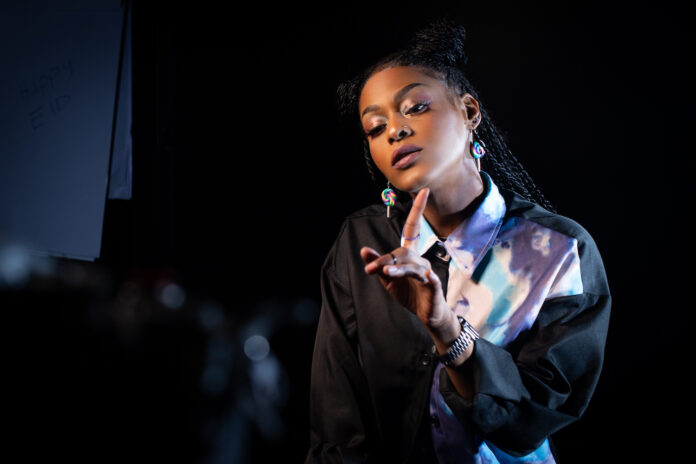RIYADH: Saudi singer and songwriter Asayel Bishi hopes to inspire a new generation of women in the domestic music industry through her sensual and innovative tunes.
The 29-year-old singer recently became the first winner of the community XPERFORM competition, held by XP Music Futures in Riyadh.
The competition was aimed at elevating and empowering local talent. Not long ago, women were banned from singing on local stages, let alone international platforms. Now female artists are leading the music industry to new horizons.
“I feel like we’re developing in such an incredible way and I think it’s the end of the era of Western music, and our (Arab) voices and talents are being recognized,” Bishi told Arab News.
From hundreds of applications for XPERFORM, only 10 artists and musicians were selected to go through to the next round by a four-judge panel, featuring Mathew Dicks, Karima Damir, Lil Eazy and Banah Anabtawi.
Saudi singer and songwriter Asayel Bishi. (Supplied)
Fans and audiences were then able to vote for the top five finalists — Asayel, Moelex, Reina Khoury, Lowkie, and Skinny G — who all gave final performances during the music conference.
“Having competitions like XPERFORM is great because we get to excite each other as artists, to work and make music. Music now is more of a language rather than a type of art. People can speak through music … You’ll find so many people inspired to create, people who never thought they could be artists,” Bishi said.
After a difficult discussion, the judges announced Asayel as the winner of the first XPERFORM contest, receiving a chance to work with MDLBEAST’s record label to further develop her path within the industry, in which she is gaining steady recognition.
She said: “Even before I won first place, (MDLBEAST) would check in on me. After I won, we held meetings to discuss what I want to do with my music. I heard from them, they heard from me, got their opinion on how to move forward.
“The whole period before, I was working alone, so it’s really nice to have someone with tips and expertise, to offer support, especially from MDLBEAST.”
While the company is widely known for its annual music festival SOUNDSTORM, garnering international recognition for its global lineups and notable acts, the firm also operates a record company and radio station.
She also gained music production experience from the Music Commission’s Virtual Training Music Program, or Sanaa, part of the Ministry of Culture’s efforts to develop the sector and support emerging artists.
“The support that’s happening now is amazing. I was very surprised. We didn’t have this before, there was no community, we didn’t know what was going on in the scene,” she said.
Bishi was gifted her first cassette tape at school by her mother, which exposed her to a whole new world.
The first song which struck a chord was “Ana Mu Walhan” (I’m Not in Love) by Saudi singer Abdullah Al-Ruwaished, and from that point her infatuation grew with how music could communicate feelings.
Music was also a gateway to learning English. While the language hadn’t been part of the school curriculum at the time, she began learning on her own through reading, watching movies, translating content, and eventually writing her own songs.
Bishi grew up with her vivid memories of the songs sung by her grandmother and several family members. Her passion for music was ever-present, but never developed into a career until 2019, when she ventured into rap and then to more soulful rhythms.
While the singer’s music is primarily cast under the R&B category, she isn’t strictly tied to it and is open to taking on any genre to further develop her style.
She greatly admires Doja Cat for her eccentric and avant garde approach, and quite often uses her as a reference for her own creations.
“There are plenty of female singers, but when it comes to hip hop artists, especially women, there’s that hesitance of whether people will accept what they hear or see. But now, you can be a hip hop, rap, R&B artist, or whatever genre, without any barriers. XP was definitely part of that change and that support,” she said.
“I want women to feel confident enough to break into the music scene. I don’t want to create music that’s inaccessible so they feel that they can’t do it. Through my multi-genre art, I want the audience to feel that they can do anything,” Bishi added.

